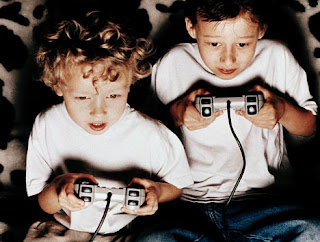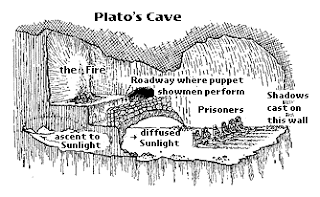
Video games are prominent in many households both nationally and internationally. However, there is a concern in today society on ‘What affect do video games have on young people?’ whether it is a positive or negative affect? Originally games began with very simple ideas. However, as society develops so do the graphics and story behind the games of today. These changes have effects on our youth in society. Some of these changes are violence within games, which many children become addicted to, and followed with anti-social behavior. However, video games don’t always have a negative effect on young people, as there are many educational games available.
Video games were first introduced in the 1970s (Digest, 1994).These games have changed society in the similar way in which television did. Society once again has adapted to new technologies and with it has come concerns whether it is a positive or negative change. Until the recent resurgence in interest in video games in the past decade, research on the topic was minimal (Kooijmans, 2004). The first generation of video games involved simple geometric shapes and had little interaction. Now however, games involve better graphics and more capabilities. These changes have eventuated in graphics that appear extremely similar to reality, with the added effect to choose from equipment and weapons, skills and techniques. All of which generally involve violence within the games. The impact of the multi-million dollar video game culture on children and young adults is now clearly acknowledged – but generally its impact is viewed negatively (Howard, 1998, p.95).
Anti-social behavior is just one of the concerns when discussing video games and their effect on children. Social isolation occurs in some cases with children spending majority of their time playing video games rather then playing sport or with other children. This becomes a large concern because it harms their social skills and ability to interact with peers which are necessary to develop at a young age. According to Cahill, Elkin, and Handel (2007, p233), the simulating world that is experienced in video games and on the Internet can prove so seductive that the real world comes to seem so boring that it loses appeal.
Addiction to video games is another cause for anti-social behavior, and according to the American Academy of Child Adolescent Psychiatry (2006), children and adolescents can become overly involved and even obsessed with videogames. It has been suggested that ‘computer game addiction’ is like any other behavioral addiction, in that it consist of compulsive behavioral involvement, a lack of interest in other activities, association mainly with other addicts, and physical and mental symptoms when attempting to stop the behavior – e.g. the ‘shakes’ (Soper & Millar in Harris, 2001, p.2). This is of large concern when a child constantly chooses to play a video game at the expense of other activities, then becoming distraught if they are unable to play the games. Another major concern has been the question of whether heavy viewing of violent content causes or contributes to anti-social behavior (Jones, 2007, p.212)
Marketing violent games to children appears to be common. In the September 2000 Report, the Commission found that game companies’ marketing documents revealed plans to advertise M-rated games repeatedly in magazines with substantial readership under 17 (Jones, 2007, p.33). There is a system for rating games and that is known as ESRB. This system is designed to give parents the information they need to evaluate a computer or video game before making a purchase (KCTS, 2008). However according to research, in some cases the children themselves purchase the software and generally are accepted even when underage. The commissions prior nationwide undercover surveys in 2000 and 2001 found that unaccompanied children ages 13-16 were able to buy M-rated games 85% (2000) and 75% (2001) of the time (Jones, 2007, p.40).
Many of the most popular games emphasize negative themes and promote criminal behavior and disrespect. Some studies have shown that the playing or observing of violent games does affect young children negatively as they show increased levels of aggressive behavior – at least in the short term (Harris, 2001, p.v). The level of aggression and violence in the games of today is astonishing. A whole game will surround the intention and object to kill and destroy. Characters can consist of a human figure, extremely lifelike and having the target to kill another human character. Studies have also shown that the more realistic and repeated the exposure to violence, the greater the impact on children (American Academy of Child Adolescent Psychiatry, 2006). The concern with children playing violent games is that it can give them the idea that violence is an acceptable way to solve a problem.
Some video games however, may promote learning, problem solving and help with the development of fine motor skills and coordination (American Academy of Child Adolescent Psychiatry, 2006). There are many programs that are directed to children as young as three years of age, which contain fun and interactive learning programs for children. These programs promote learning in an enjoyable way for those who struggle with perhaps English or Math. Kids also get to learn new skills or experience something that their own personal skills or the laws of gravity won’t allow them to do (Martin & Oppenhiem, 2007). Research has found that in general among most youth, there is no significant impairment in psychological functioning caused by game playing (Barnett, 2005).
In conclusion there are both negative and positive factors when considering the question ‘What affect do video games have on young people?’ however, evidence provided suggest that long-term gaming for young children have a negative effect towards their development. The confusion is between the gaming world and reality, when children become obsessed and involved in the gaming world it causes in some cases anti-social behavior and violence. According to Poole (2002, p.109), videogames manipulate the imaginative involvement for the player, in the ruses and paradigms of their unreal worlds.
Video games were first introduced in the 1970s (Digest, 1994).These games have changed society in the similar way in which television did. Society once again has adapted to new technologies and with it has come concerns whether it is a positive or negative change. Until the recent resurgence in interest in video games in the past decade, research on the topic was minimal (Kooijmans, 2004). The first generation of video games involved simple geometric shapes and had little interaction. Now however, games involve better graphics and more capabilities. These changes have eventuated in graphics that appear extremely similar to reality, with the added effect to choose from equipment and weapons, skills and techniques. All of which generally involve violence within the games. The impact of the multi-million dollar video game culture on children and young adults is now clearly acknowledged – but generally its impact is viewed negatively (Howard, 1998, p.95).
Anti-social behavior is just one of the concerns when discussing video games and their effect on children. Social isolation occurs in some cases with children spending majority of their time playing video games rather then playing sport or with other children. This becomes a large concern because it harms their social skills and ability to interact with peers which are necessary to develop at a young age. According to Cahill, Elkin, and Handel (2007, p233), the simulating world that is experienced in video games and on the Internet can prove so seductive that the real world comes to seem so boring that it loses appeal.
Addiction to video games is another cause for anti-social behavior, and according to the American Academy of Child Adolescent Psychiatry (2006), children and adolescents can become overly involved and even obsessed with videogames. It has been suggested that ‘computer game addiction’ is like any other behavioral addiction, in that it consist of compulsive behavioral involvement, a lack of interest in other activities, association mainly with other addicts, and physical and mental symptoms when attempting to stop the behavior – e.g. the ‘shakes’ (Soper & Millar in Harris, 2001, p.2). This is of large concern when a child constantly chooses to play a video game at the expense of other activities, then becoming distraught if they are unable to play the games. Another major concern has been the question of whether heavy viewing of violent content causes or contributes to anti-social behavior (Jones, 2007, p.212)
Marketing violent games to children appears to be common. In the September 2000 Report, the Commission found that game companies’ marketing documents revealed plans to advertise M-rated games repeatedly in magazines with substantial readership under 17 (Jones, 2007, p.33). There is a system for rating games and that is known as ESRB. This system is designed to give parents the information they need to evaluate a computer or video game before making a purchase (KCTS, 2008). However according to research, in some cases the children themselves purchase the software and generally are accepted even when underage. The commissions prior nationwide undercover surveys in 2000 and 2001 found that unaccompanied children ages 13-16 were able to buy M-rated games 85% (2000) and 75% (2001) of the time (Jones, 2007, p.40).
Many of the most popular games emphasize negative themes and promote criminal behavior and disrespect. Some studies have shown that the playing or observing of violent games does affect young children negatively as they show increased levels of aggressive behavior – at least in the short term (Harris, 2001, p.v). The level of aggression and violence in the games of today is astonishing. A whole game will surround the intention and object to kill and destroy. Characters can consist of a human figure, extremely lifelike and having the target to kill another human character. Studies have also shown that the more realistic and repeated the exposure to violence, the greater the impact on children (American Academy of Child Adolescent Psychiatry, 2006). The concern with children playing violent games is that it can give them the idea that violence is an acceptable way to solve a problem.
Some video games however, may promote learning, problem solving and help with the development of fine motor skills and coordination (American Academy of Child Adolescent Psychiatry, 2006). There are many programs that are directed to children as young as three years of age, which contain fun and interactive learning programs for children. These programs promote learning in an enjoyable way for those who struggle with perhaps English or Math. Kids also get to learn new skills or experience something that their own personal skills or the laws of gravity won’t allow them to do (Martin & Oppenhiem, 2007). Research has found that in general among most youth, there is no significant impairment in psychological functioning caused by game playing (Barnett, 2005).
In conclusion there are both negative and positive factors when considering the question ‘What affect do video games have on young people?’ however, evidence provided suggest that long-term gaming for young children have a negative effect towards their development. The confusion is between the gaming world and reality, when children become obsessed and involved in the gaming world it causes in some cases anti-social behavior and violence. According to Poole (2002, p.109), videogames manipulate the imaginative involvement for the player, in the ruses and paradigms of their unreal worlds.
By April Turnbull
30 May 2008
